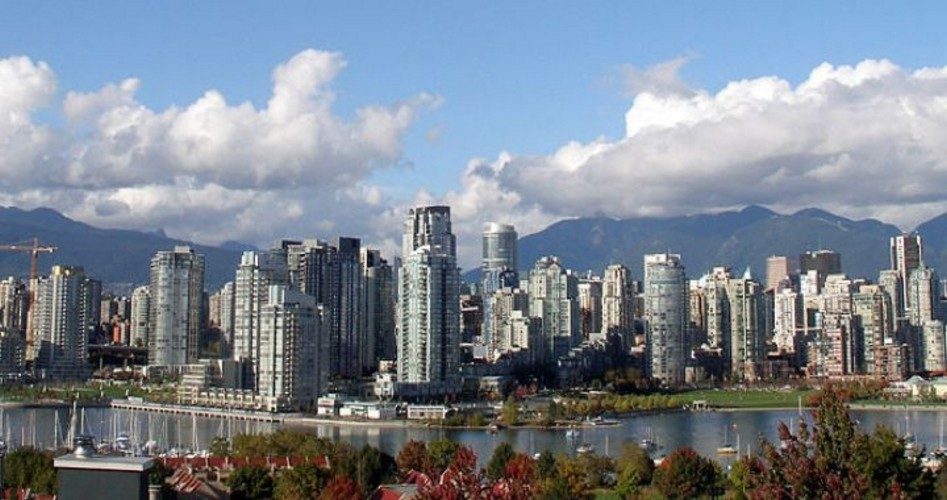
The impact of the 15-percent “foreign buyer transfer tax” — a real estate tax that is only applied on foreigners, not Canadians — levied by Vancouver, a West Coast city in the Canadian province of British Columbia, was felt almost immediately: Real estate prices began falling, realtor listings took longer to sell as buyers disappeared, and, consequently, revenues anticipated from instituting the tax aren’t likely to meet expectations.
Observers said the tax was levied to protect the local real estate market from becoming “overheated” thanks to increasing demand from foreign investors. “Remember the Great Recession” became the mantra. What goes up must come down, etc. Indeed, prices have increased by nearly 50 percent over just the last three years, driving the median cost of a home in Vancouver to $1.5 million.
Members of the city council imposed the 15-percent tariff on August 1, and by the end of September investment in the high end of the market had already dropped 20 percent. Buyers began focusing their attention on other cities such as Seattle, 120 miles away, where average home prices are well under a million.
Who is benefitting from the imposition of this “foreign buyer transfer tax?” With buyers focusing elsewhere, projected revenues from the tax are likely to fall far short of expectations. Builders are slowing their commitments as a result, laying off workers in the process. Realtors are hurting, too, with many of them obtaining licenses to operate in Seattle in order to stay in business. The ripple effect is just beginning to be felt as the slowdown begins to impact support jobs related to the real estate industry. Homeowners who have enjoyed seeing their paper profits escalate are now facing the new reality: Their homes aren’t worth what they were as recently as last summer, and those who took advantage of low rates either to buy new or obtain a home equity loan are increasingly finding themselves underwater and unable to find a buyer to bail them out.
Fred Floss, chairman of the economics department at SUNY Buffalo State, observes that imposing a tariff on Mexico will have a similar slowing effect in the United States. Because the United States mainly imports auto parts and small engines from Mexico, he says, “Anything that has a small engine in it will start to cost more.… The scary thing is that a lot of those motors go into things Americans make. So if all of a sudden it gets to be more expensive to make goods in the United States, then we’re going to start to see layoffs because our goods aren’t going to sell.” He added: “In other words, we’re going to pay the cost of the wall” both directly and indirectly.
International trade unhampered by tariffs benefits consumers and sellers alike. Every trade results in each party being better off economically. Competition drives the prices of goods and services down, allowing purchasers to enjoy an ever higher standard of living. Those profiting from making the products consumers want — whether they be small motors, cellphones, or automobiles — will be encouraged to expand their production, hiring new workers who then are able to increase their own purchasing power.
Adam Smith was right:
Every individual necessarily labors to render the annual revenue of the society as great as he can….
He intends only his own gain, and he is in this, as in many other cases, led by an invisible hand to promote an end which was no part of his intention….
By pursuing his own interests, he frequently promotes that of the society more effectually than when he really intends to promote it.
And then Smith added the warning that President Trump might want to heed:
I have never known much good done by those who affected to trade for the public good.
Let do-gooder politicians act to manipulate a market, and watch what happens. Let them intervene in attempts to “solve” perceived “problems” and wait for the unintended consequences to kick in. In Vancouver, house prices are indeed falling, and the conversation is no longer centered around concerns that the real estate market is in a bubble. Instead realtors are scrambling, builders are cancelling, workers are being laid off, with the negative ripple effect rolling ever outward.
Even more insidious is that in today’s welfare state, tariffs work to put displaced and unemployed people on the state’s dole, increasing dependence on government while its revenues are declining. This is an open invitation to continue to fund welfare state deficits through debauching of the currency and inflation, or perhaps hyperinflation.
Is President Trump watching what’s happening in Vancouver?
An Ivy League graduate and former investment advisor, Bob is a regular contributor to The New American magazine and blogs frequently at LightFromTheRight.com, primarily on economics and politics. He can be reached at [email protected].



